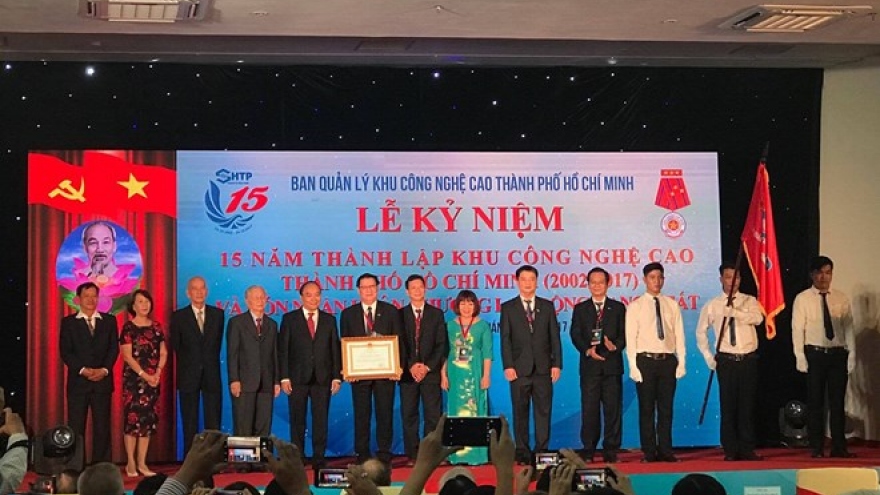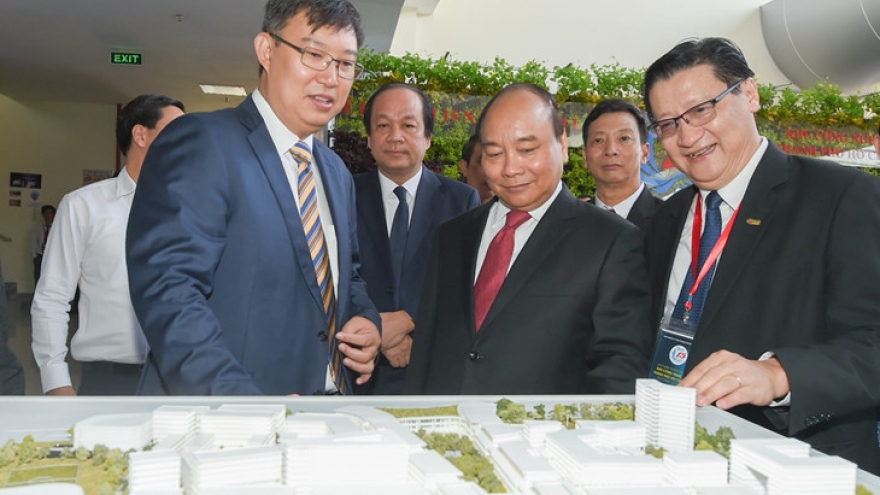HCM City tries to get smart with plans for ‘Silicon Valley’
Ho Chi Minh City is planning to transform three of its eastern districts into “innovative urban areas” as part of a master plan to become a "smart city" by 2020.
| Ho Chi Minh City's downtown seen from Thu Thiem Peninsula in District 2. Photo by Pham Thanh Chau |
The areas will be developed at the hi-tech park in District 9, the university precinct in Thu Duc District and the new urban area and financial center on the Thu Thiem Peninsula in District 2.
“Once in shape, these areas will be the launch pad for the city's fourth industrial revolution," deputy chairman Tran Vinh Tuyen told a conference on Thursday.
If the city fails to connect these three districts, it will be unable to turn startup ideas into reality, which would be a huge waste of public assets, the city's Party chief Nguyen Thien Nhan said.
Authorities in charge of these new innovative areas should act as role models and ensure transparency through e-governance to stop businesses from being hassled by state officials.
Traffic infrastructure should also be “smart” and environmental protection should be taken into serious account, he said.
“This will be Vietnam's Silicon Valley,” Le Van Thanh from the Ho Chi Minh City Institute for Development Studies said at the event.
It will gather the most advanced technologies and be home to the largest university research centers in Vietnam. Investment for these areas will come from the city's budget and private and foreign investment, he said.
Professor Phan Van Truong, an expert in urban economics, planning and international negotiations, said he agreed that the eastern part of the city had potential for future development, but in order to make this plan work, the city had to start with the basics, namely traffic infrastructure.
Urban areas in the city's downtown are currently facing major traffic problems, with people taking over the sidewalks and the streets looking a mess most of the time.
For the innovative urban areas, he suggested the city should give priority to pedestrians, offer free bus services and ban all cars and motorbikes. Two metro lines are under construction in the areas in question, but it is unclear when they will be completed.
Under the new plan, locals and businesses will be able to complete administrative procedures online instead of wasting time in government offices waiting for the final seal of approval.
The plan also promises “advanced tools” for better management that will prevent state officials from causing problems for residents and businesses.
The same solution will be applied in public hospitals, allowing patients to book appointments and services online.
Despite these promises of a bright future, locals don't seem to be that enthused.
Most VnExpress readers commented that the plan is macroscopic and unfeasible, saying what they need now is a city that does not flood so easily with less traffic and trash on the streets.
Tuyen said at the meeting that the city will learn from residents' feedback and be proactive rather than just trying to fix existing problems.



